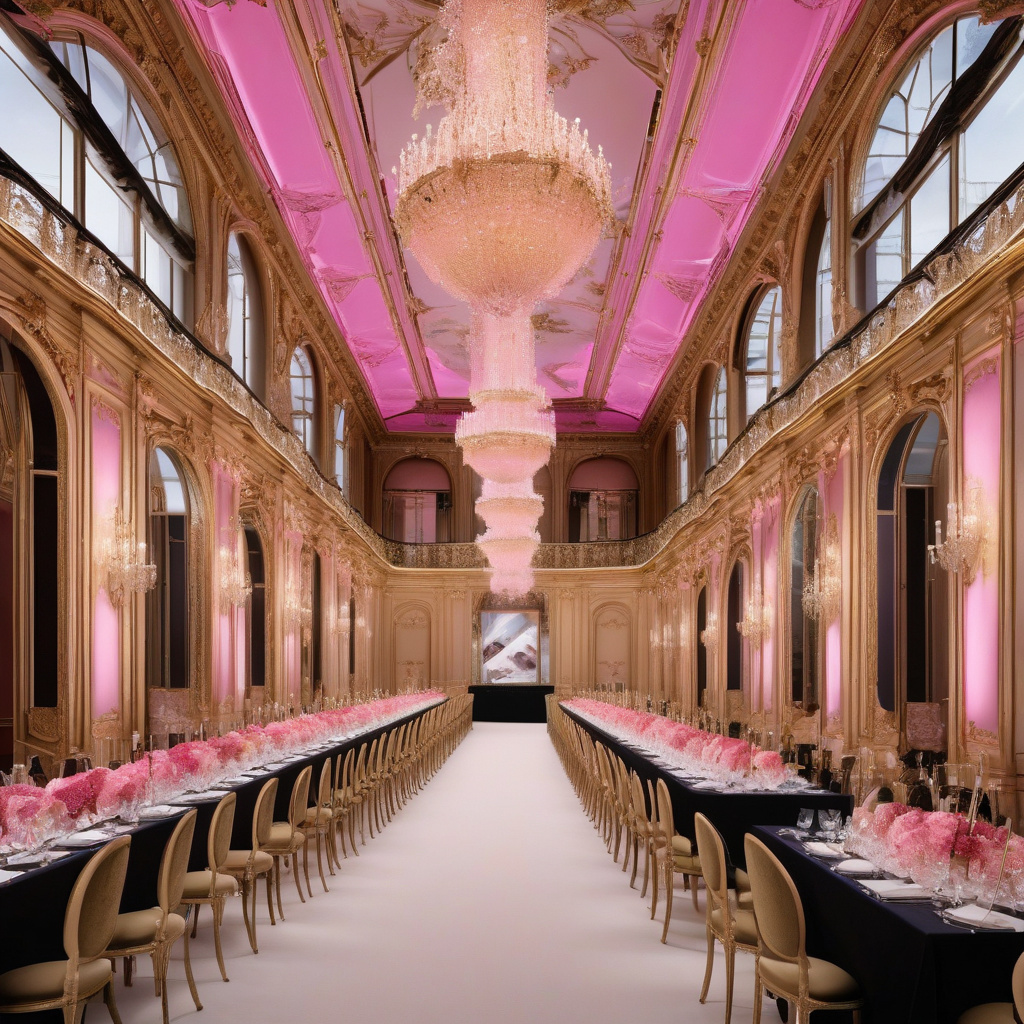The Business of Fashion and The Business of Beauty Gather Industry Leaders in Paris
In a world where consumer values are evolving rapidly, the fashion and beauty industries find themselves at a critical juncture. Recently, an exclusive gathering of industry leaders took place in Paris, uniting executives from renowned brands such as Chanel, L’Oréal, Schiaparelli, Puig, Kering, Sephora, and De Beers Group. The focus of this intimate conversation was on building brand equity in a market increasingly driven by values rather than mere aesthetics.
The Paris event served as a platform for these industry titans to share insights and strategies for navigating the challenges posed by changing consumer expectations. With millennials and Gen Z leading the charge, brands are now facing a demand for transparency, sustainability, and social responsibility. In this context, it becomes essential for luxury brands to not only maintain their heritage and craftsmanship but also to align with the values that resonate with today’s consumers.
One of the key discussions centered around the importance of storytelling in brand positioning. Executives highlighted how successful brands are those that can articulate their heritage while also addressing contemporary issues. For instance, Chanel, with its rich history and iconic status, has been proactive in enhancing its narrative by incorporating sustainable practices into its operations. This shift not only appeals to environmentally conscious consumers but also reinforces the brand’s commitment to innovation and relevance.
L’Oréal, a leader in the beauty sector, shared insights on how it has adapted its marketing strategies to align with the growing emphasis on diversity and inclusivity. The company has launched several initiatives aimed at promoting representation within its product lines and advertising campaigns. By showcasing a broader spectrum of beauty, L’Oréal has successfully tapped into a more extensive consumer base while reinforcing its position as a progressive brand.
Schiaparelli, known for its avant-garde approach, highlighted the significance of collaboration with emerging talents and artists as a way to stay relevant. By engaging with new voices, the brand not only fosters creativity but also connects with younger consumers who value originality and authenticity. This strategy exemplifies how traditional luxury brands can innovate while staying true to their core ethos.
The conversation also addressed the role of technology in shaping the future of retail. Sephora, a leader in beauty retail, discussed the integration of digital tools to enhance customer experience. From augmented reality try-ons to personalized beauty consultations through artificial intelligence, the company is setting a new standard for how consumers interact with beauty products. This tech-savvy approach not only drives sales but also strengthens brand loyalty, as customers feel more engaged and valued.
Moreover, the gathering recognized the impact of social media in shaping brand perception. Executives from various brands agreed that an authentic online presence is now crucial for building trust. With platforms like Instagram and TikTok becoming primary channels for consumer engagement, brands must be diligent in curating their online identities. De Beers Group, for instance, has leveraged social media to tell stories about the craftsmanship behind its diamond collections, thereby creating deeper connections with consumers.
As the conversation unfolded, it became clear that the intersection of fashion and beauty is more dynamic than ever. Kering, a luxury conglomerate, emphasized the importance of sustainability across its portfolio. By investing in eco-friendly practices and promoting circular fashion, Kering not only meets consumer demand for responsible luxury but also sets a benchmark for the industry. This commitment to sustainability is increasingly becoming a vital component of brand equity, as consumers are more likely to support brands that prioritize ethical practices.
In conclusion, the intimate discussions held in Paris underscored the necessity for brands in both the fashion and beauty industries to adapt to a landscape defined by value-driven consumer behavior. By focusing on storytelling, inclusivity, innovative technology, and sustainable practices, these industry leaders are not only reinforcing their brand equity but also shaping the future of their respective markets. As the industry evolves, it is evident that a brand’s success will hinge on its ability to resonate with the values of its consumers, ultimately defining the new standard for luxury.
brand equity, fashion industry, beauty industry, sustainability, consumer values
